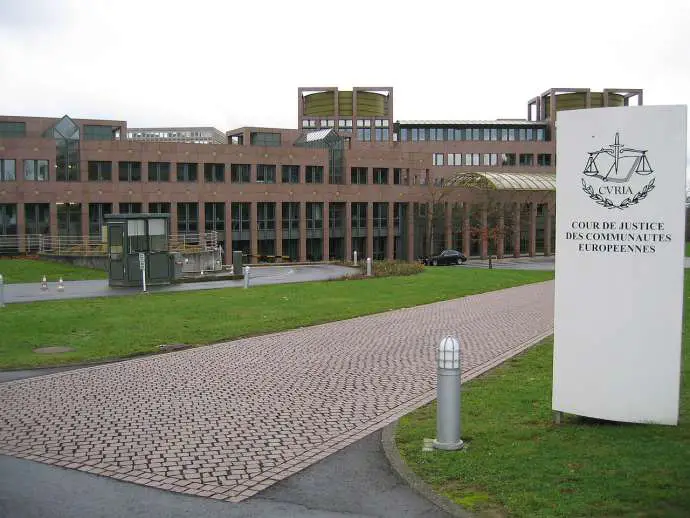STA, 3 September 2020 - By seizing European Central Bank (ECB) documents from the Slovenian central bank in an investigation of the 2013 bank bailout, Slovenia breached provisions of EU law that grant the ECB special immunity, an advocate general at the Court of Justice of the EU said in her opinion in a case brought against Slovenia by the EU Commission.
Advocate General Juliane Kokott said that by seizing communication and electronic documents from the premises of Banka Slovenije in 2016 without first coordinating with the ECB and securing a court decision, Slovenian law enforcement breached Articles 2, 18 and 22 of Protocol No. 7 on the Privileges and Immunities of the European Union.
After it seized the documents, Slovenia neither substantiated which documents are necessary for the national criminal procedure nor returned the remaining documents which constitute protected archives of the ECB, reads the opinion, which was presented at the court on Thursday.
The 21-page opinion, which is not binding on the court, thus upholds both claims made by the European Commission in the lawsuit against Slovenia.
Summing up the gist of the opinion, Advocate General of the European Court of Justice Gerard Hogan said that the court must now "resolve the tension" between the Union's interest in preserving the ECB's independence and the interest of member states to conduct effective criminal investigations.
The procedure is seen as an important precedent in that it raises important questions about the relationship between national authorities and EU institutions.
The protocol on privileges and immunities is rarely the subject of a legal dispute and the case could help clarify the circumstances under which immunity of Union archives applies. However, it remains unclear whether the court will deliver a final judgement at all.
Slovenia has so far rejected all allegations and a Slovenian legal representative said after oral arguments in June that the court's questions had indicated a favourable disposition towards Slovenia's arguments.
But just days before that, Prime Minister Janez Janša wrote a letter to European Commission President Ursula von der Leyen inquiring about the conditions under which the Commission would be willing to withdraw its lawsuit.
In July Janša clarified that an agreement on withdrawal might involve ECB representatives coming to Slovenia and making it clear which of the seized materials constitute ECB archives. Slovenian law enforcement would have to agree on that.
The court says it does not have information about a possible withdrawal of the suit. Unofficial information from the Slovenian side indicates there have been no new developments in this respect. The lawsuit may be withdrawn at any point before the court hands down its ruling.
Commenting on the advocate general's opinion, Slovenian Justice Minister Lilijana Kozlovič said the opinion constituted "neither victory nor defeat since the case is a precedent".
"Regardless of the outcome, we will finally know what constitutes ECB archives, which has so far not been entirely clear," said the minister, noting that she could not comment in greater detail since the ministry had not yet received the opinion.
Asked whether Janša had been unsuccessful with regard to the possibility of a withdrawal of the lawsuit, Kozlovič said the court procedure was running independently while parties to the proceedings had other legal avenues at their disposal as well.
The Slovenian central bank would not comment, saying it was not a party to the proceedings. The Supreme State Prosecutor's Office would not comment at this point in the proceedings.
Janša meanwhile said on Twitter that the "abuse of the police directed by the [Social Democrats] SD party in the clash with [Banka Slovenije] Governor Jazbec has not worked out". He added that such abuses always shed bad light on the country.
The European Commission, on the other hand, expressed satisfaction with the advocate general's position.
"This follows the Commission's decision to refer Slovenia to the Court of Justice of the EU for the violation of the inviolability of the archives of the Union and the duty of sincere cooperation in the context of the seizure of ECB documents that took place at the Central Bank of Slovenia," the Commission said.






